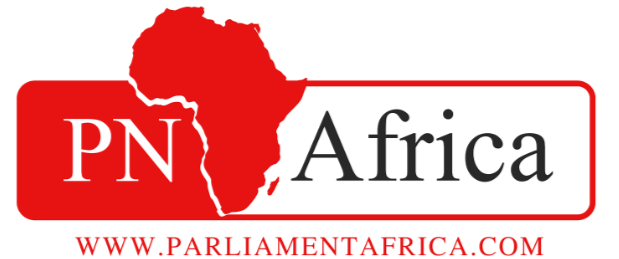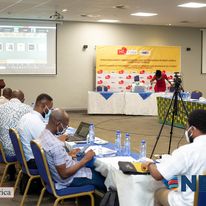Introduction
To achieve the ambitious goals that they set for themselves, parliamentary monitoring organisations (PMOs) in Africa must embrace collaboration among themselves. PMOs play diverse roles including monitoring policies and programmes of governments and facilitating open and voluntary participation, and bridging the gap between representatives and the represented. It is therefore important that PMOs work together to share lessons among themselves and to leverage the expertise and information that they have acquired through monitoring and engaging with Parliament.
Because organisations that monitor Parliament play a central role in advancing participatory democracy, there is the need for PMOs to understand that building a community of practice is what will advance the work they do as promoters of Open Parliament in Africa.
The theory of change of Parliamentary Network Africa (PNAfrica) envisions bringing together PMOs and the Media, and equipping them with the tools and skills to advocate the adoption and implementation of open parliament reforms across the continent. These reforms will in the long run enhance transparency in the work of parliament, ensure that parliaments are accountable to the public and that they increase public participation in the parliamentary process across Africa.
PNAfrica as a leading PMO in Africa has since July 2021 been mobilising PMOs across the West African sub-region (both Anglophone and Francophone) to promote Open Parliament as part of its “Open Parliament Engagements and Networking in West Africa (OPEN West Africa)” project. The OPEN West Africa project seeks to facilitate networking among PMOs to promote experience sharing and collaborative dialogue and; to strengthen parliamentary openness across national and regional legislatures in West Africa through an Open Parliament Index. The project has successfully engaged and initiated PMO Networks across ten (10) countries.
Anglophone West Africa
Among the countries in West Africa, PNAfrica has engaged Liberia, Sierra Leone, The Gambia, Ghana and Nigeria. PMOs in each of these countries participated in the capacity strengthening workshops and learning sessions which were organised to enable them to network and learn from the experience of parliamentary development experts and from amongst themselves concerning their engagement with their respective national Parliaments.
These engagements have enabled us to identify the skills and knowledge that PMOs lack to successfully engage with Parliament, even though PMOs demonstrated some understanding of the concept of Open Parliament (and Open Government in general). There is the need, therefore, to equip these PMOs with the required knowledge on ways they can strengthen parliamentary transparency, accountability and enhance public participation.
We observed that many PMOs have been engaging their national Parliaments to establish cordial working relationships with them and explore ways they can work together to enhance parliamentary work, considering that most Parliaments across the sub-region do not have the capacity to deliver cutting-edge technical and administrative work. PMOs find themselves in a position to partner with and support their national Parliament with their expertise to deliver on their functions of oversight, law-making and representation.
In Sierra Leone, there was an example worth emulating by PMOs across the sub-region. Some Civil Society Organisations (CSOs) had engaged the national Parliament to formalise a working relationship by signing a Memorandum of Understanding that defines clearly what role the parties (CSOs and Parliament) have to play to enhance parliamentary effectiveness.
This relationship has led to initial engagements between parliament and CSOs where the two have discussed areas where parliament would need the support of CSOs. Such cordial relationship building between PMOs and Parliaments demonstrates that Parliament is willing to partner with PMOs to enhance transparency, accountability and public participation, enabling PMOs to provide their expertise to Parliament to achieve a common objective – parliamentary openness.
For a country like The Gambia which has just transitioned from a period of undemocratic governance, PMOs have made several unsuccessful attempts in the past to work together. Despite failing in their earlier attempts, PMOs have created the Network of PMOs in The Gambia. These efforts combine to position PMOs as reliable partners with the National Assembly to participate in the parliamentary process.
In advancing parliamentary openness PNAfrica has included the media (parliamentary journalists) who play a very critical role in disseminating information from Parliaments. Along with strengthening PMOs capacities across West Africa, we have engaged with and supported parliamentary journalists to either establish Parliamentary Press Galleries or revitalize what has been a nonfunctional Press Gallery. This has been done to ensure that parliamentary journalists from various parliamentary press galleries or associations in West Africa (with examples from Sierra Leone and The Gambia) receive special training to strengthen their capacity to objectively report on the work of Parliament.
The West African Parliamentary Monitoring Organisations Network led an engagement with the ECOWAS Parliament to establish a cordial relationship with the regional legislative body towards advancing open parliament reforms and work together to ensure that ECOWAS Members of Parliament represent the citizens of West Africa adequately.
These engagements have not only helped us to expand the concept of parliamentary openness across West Africa, but it has also provided the grounds for lasting PMO-PMO relationship building with organisations like the Institute for Research and Democratic Development (IREDD), Liberia; Institue for Governance Reforms (IGR), Sierra Leone; and OrderPaper Nigeria.
Francophone West Africa
In Francophone West Africa, countries that were engaged include Benin, Cote d’Ivoire, Burkina Faso, Niger, Senegal and Togo. Despite that, comparably, francophone West African Parliaments are opaque, an overwhelming enthusiasm was demonstrated by PMOs in support of the initiative to collaborate while learning from best practices across the sub-regions to enable them to engage their national Parliaments effectively.
The penetration of Open Parliament across Francophone West Africa has been very low and this has contributed to the low level of PMOs’ understanding of the concept of Open Parliament (and Open Government in general). That notwithstanding, PMOs have recognized that working together can be mutually rewarding and help them discover new opportunities to advance parliamentary openness within their countries.
Currently, military coups in three West African countries – Burkina Faso, Guinea and Mali – have destabilised democratic processes and curtailed the power of the legislative arm of government. These events set back a contr’s social and democratic development. And one of the solutions to these undemocratic regime changes is to empower an active civil society that works closely with the legislature to uphold democratic principles and strengthen Parliaments to ensure an inclusive future.
In the face of progressive openness in Parliaments across francophone West Africa, PMOs like Social Watch Benin; Centre de Recherche et de Formation sur le Développement Intégré (CREFDI), Côte d’Ivoire; Centre for the Democratic Governance (CDG), Burkina Faso; and Collectif des Associations Contre l’Impunité au Togo (CACIT), Togo, have maintained their relationsip with their national Parliaments ad positioned themselves for future engageents with them to improve parliamentary openness.
Conclusion
Understandably, PMOs may have justifiable reasons why they may not collaborate, not even in an area where there is shrinking democratic and civic space for PMOs to operate, and where there is clear evidence of poor governance. PMOs would rather focus their concentration on working individually locally or internationally than collaborate with other organisations that share similar goals.
Collaboration does not always bring anticipated results to collaborating organizations but inferring from the lessons above, the collaboration between local or international PMOs presents immense benefits to these organisations and the Parliaments they work with. Some of these benefits include the below.
In the first place, political leaders have expressed willingness to collaborate with PMOs to promote open Parliament. PMOs who constantly work with Parliament are regarded as trustworthy partners and not as antagonists who are only interested in bad-mouthing representatives.
In most of the countries visited, the Leadership of Parliament recognises the need to learn from what other parliaments have done (or are doing) towards enhancing transparency, accountability and increasing public participation in the work of parliament. The support of Parliament provides legitimacy for PMOs working with Members and staff of Parliament to achieve intended open parliament plans.
On a second note, PMOs in francophone West Africa are very enthused about working together as a Network to engage their national Parliament, yet they lack sufficient knowledge and capacity to advance the open parliament principles. Collaboration between PMOs across the sub-region provides a bigger pool of skilled parliamentary development experts and experienced Open Parliament advocates, through which PMOs and parliaments can access the necessary support to improve and strengthen their capacity to engage their national Parliaments.
Third but not least, democracy across West Africa is facing serious threats with the occurrence of military coups. This requires a collective effort of PMOs across the sub-region to act now to reduce the growing tensions and work closely with the national and regional legislative bodies to strengthen the relationship between the electorates and their elected officials.
PMO Networks across West Africa should be given financial support in the short- and long-run to ensure the sustainability of PMO Networks to strengthen democratic parliaments across the sub-region.
Author: Benjamin Opoku Aryeh is a Senior Programmes Officer with Parliamentary Network Africa.





